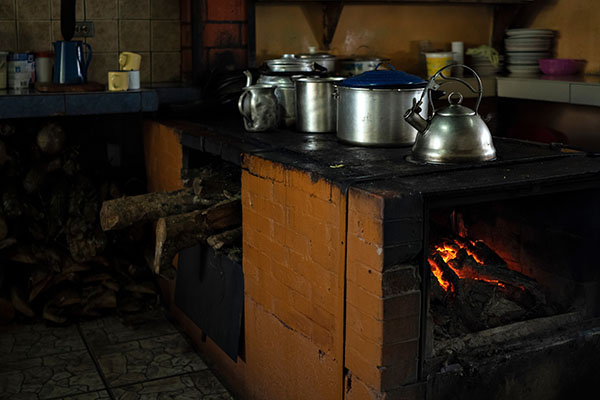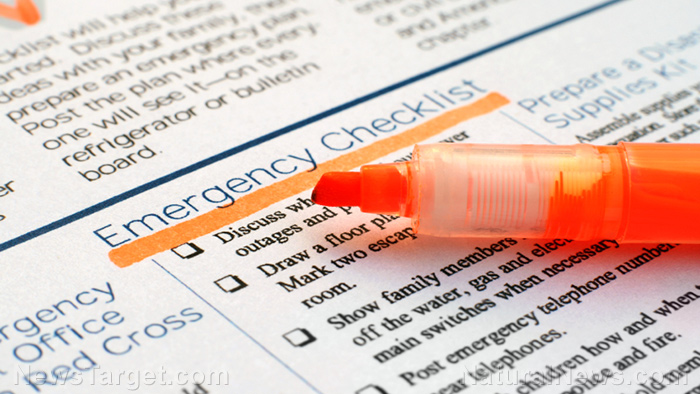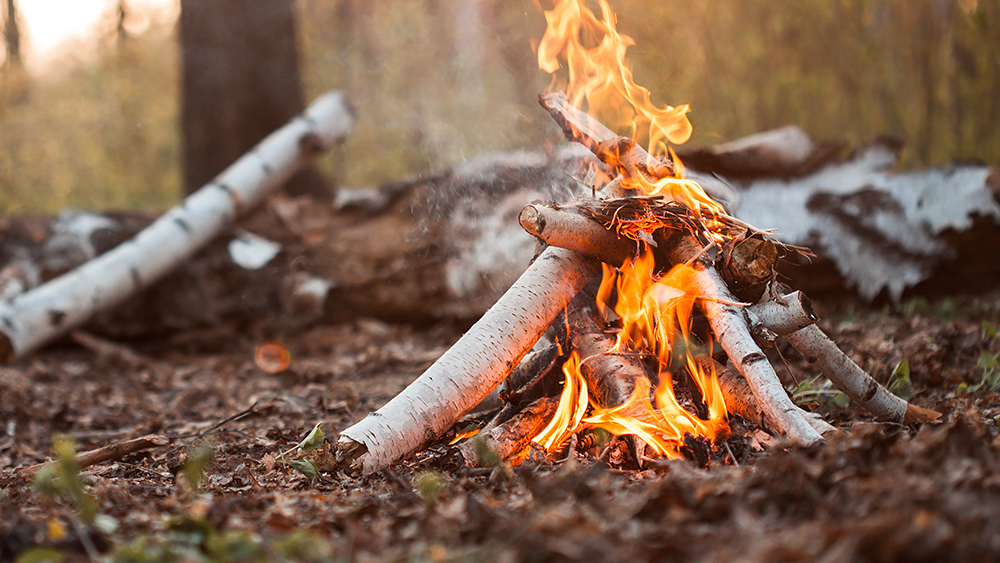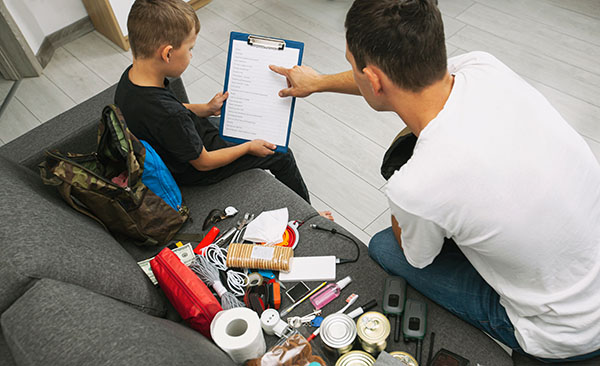Prepper hacks: 22 Clever uses for trash bags
By Divina Ramirez // Jul 09, 2021
TAGS: Gear, preparedness, prepper, prepper tools, prepping, SHTF, survival, survival bag, survival gear, survival tools, survivalist, tools, trash bags

Trash bags can be used in many ways to ensure your survival when SHTF. This is why they should be in every bugout bag (BOB) and emergency kit. Plus, trash bags are extremely lightweight and dirt cheap.
Here are 22 ways to use trash bags in a survival situation: (h/t to SurvivalCache.com)
- Make a rain poncho – Trash bags make great rain ponchos. Just cut holes for your head and arms and put it on like you would a regular shirt.
- Keep things dry – When faced with rain or flooding, you can put clothes, food, matches and other important gear inside a trash bag to keep them dry.
- Waterproof a shelter – To waterproof your makeshift shelter, cut open a trash bag so that it's one piece. Secure that on the roof to prevent leaks.
- Collect rainwater – Dig a hole in the ground and line it with a trash bag to collect rainwater.
- Collect water from trees – You'll need all the water you can get in an SHTF situation. Thankfully, trees lose water through a process called transpiration. Attach trash bags to some branches to collect water as it leaves the tree. Make sure the bags are open.
- Transport water – In a pinch, you can use a trash bag to haul water from a pond or river back to camp.
- Make a pillow – Items for comfort, such as pillows, will be luxuries in an SHTF situation. But that does not mean you have to forgo them altogether. Just fill a trash bag with leaves to make a pillow.
- Insulate the ground – Sleeping directly on the ground is an easy way to lose precious body heat. Make a sleeping pad with trash bags and vegetation to put some space between your body and the ground.
- Make a signal flag – If you have a colored trash bag, tie it to a pole and erect that to make a signal flag. You can make a windsock if you tie the bag between two poles.
- Catch fish – Fashion a net or a fish trap with trash bags and a sharp tool.
- Heat water – Trash bags can be used as a rudimentary water heater. Fill a bag with water and set it out in the sun for a few hours.
- Filter water – Poke the bottom of a trash bag several times with a safety pin. Then, pour water into the bag over a bucket or container to filter out large sediments. Alternatively, you can fill a trash bag with water and set it aside for a while. The sediments will sink to the bottom, leaving clean water on top. (Related: Staying hydrated when SHTF: 4 Ways to filter water.)
- Create a buoy – You can use a buoy as a signaling device or as a bobber for fishing. To make a buoy, just fill a trash bag with air and tie it shut. Attach a fishing line or something weighted to keep it from floating away.
- Make an arm sling – Tie two ends of a trash bag into a secure knot to create a loop. Wear the loop like a necklace, then slip your injured arm into it the loop for support.
- Bandage wounds – In a pinch, you can use a trash bag to bandage an open wound and keep it dry and clean. Cut out an appropriately sized piece from a trash bag and secure it over the wound.
- Repair and blackout windows – Secure broken windows with trash bags and duct tape. For security, you can also blackout your windows with trash bags.
- Make a toilet – Make a rudimentary toilet by lining a bucket with a trash bag and adding materials like moss, sawdust or dead leaves.
- Protect shoes – If you need to cross a wet or muddy area, step into trash bags while wearing shoes and tie them securely along your leg.
- Make rope – Fashion a rope by cutting trash bags into strips and tying them together. Rope made from trash bags won't be strong enough to pull a person or a vehicle out of a ditch. But it will be enough for small tying tasks.
- Mark a trail – Trailblazing is the practice of marking your trail so you know don't get lost. You can use strips of colored trash bags to mark your trail. Tie them around tree trunks or hang them from branches.
- Protect a supply cache – If you need to evacuate quickly and can't take certain supplies with you, put them in a trash bag for protection and hide them under vegetation.
- Make gloves – Gloves are handy for when you need to handle hazardous or unsanitary objects. In such situations, you can use small trash bags as gloves to protect your hands.
Learn more about how to use other common household items in survival situations at Survival.news.
Sources include:
Related Topics
Gear preparedness prepper prepper tools prepping SHTF survival survival bag survival gear survival tools survivalist tools trash bagsLatest News
05/18/2023 / By Ethan Huff
05/18/2023 / By Ethan Huff
05/18/2023 / By Ethan Huff
05/18/2023 / By JD Heyes
05/18/2023 / By Kevin Hughes
Related News
05/17/2023 / By Olivia Cook
05/15/2023 / By Zoey Sky
05/15/2023 / By Olivia Cook
05/11/2023 / By Zoey Sky
05/05/2023 / By Zoey Sky
05/04/2023 / By Zoey Sky
Take Action:
Support NewsTarget by linking to this article from your website.
Permalink to this article:
Copy
Embed article link:
Copy
Reprinting this article:
Non-commercial use is permitted with credit to NewsTarget.com (including a clickable link).
Please contact us for more information.
Please contact us for more information.





















